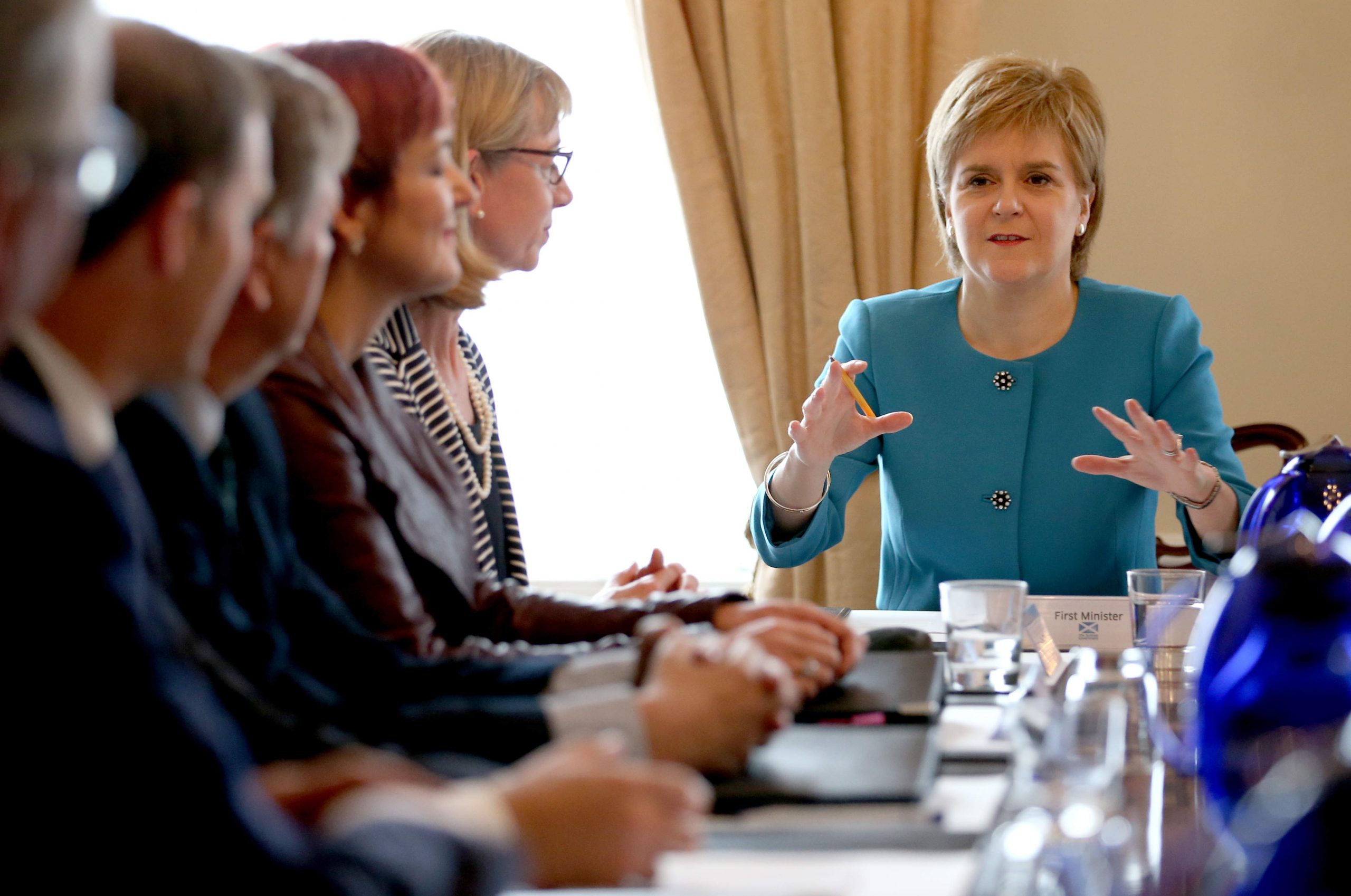
Since 2014, Scotland has been split between “neverenders” who constantly agitate for another vote on independence, and those who complain of referendum fatigue.
This latter emotion appeared to be in the ascendancy during the EU referendum last week, when Scottish voters failed to turn out in large enough numbers to push the Remain vote over the 50% threshold.
And First Minister Nicola Sturgeon has framed her arguments accordingly.
Speaking on the Andrew Marr Show, the Scottish National Party leader portrayed herself as battling for the status quo and declared “independence is not my starting point”.
Describing the process of leaving the European Union as “deeply damaging”, she said: “The status quo we voted for doesn’t exist.”
Sturgeon said there was “no vacuum of leadership in Scotland” and added: “My priority is to seek to protect Scotland’s interests in uncharted territory.”
As well as redefining Scottish independence, Sturgeon is attempting to redefine the rules of the debate. Quizzed on whether she could actually take a unilateral approach to negotiations, she claimed: “The reality is there are no rules, there is no precedent. What will happen from here on in is a matter of negotiation.”
Batting away reports that Brussels would not want to sit down with her, she again outlined plans to meet with EU institutions over the coming weeks.
There is no doubt the First Minister has captured the zeitgeist in Scotland, the most Europhile part of the UK. A full 62 per cent of voters opted to remain in the EU, compared to the UK average of 48.1 per cent.
But even as she vows to protect the status quo, Sturgeon may find the practical details of “protecting Scotland’s interests” are a stumbling block.
She was unable to say much more about the currency question apart from suggesting it was a “moral issue”, and that the borders question would affect Northern Ireland as well.
During the Scottish referendum, Sturgeon and her colleagues tried to play down the prospect of land borders and an adoption of the euro. Whether Scottish voters’ attachment to the EU could include such impositions remains to be seen.






